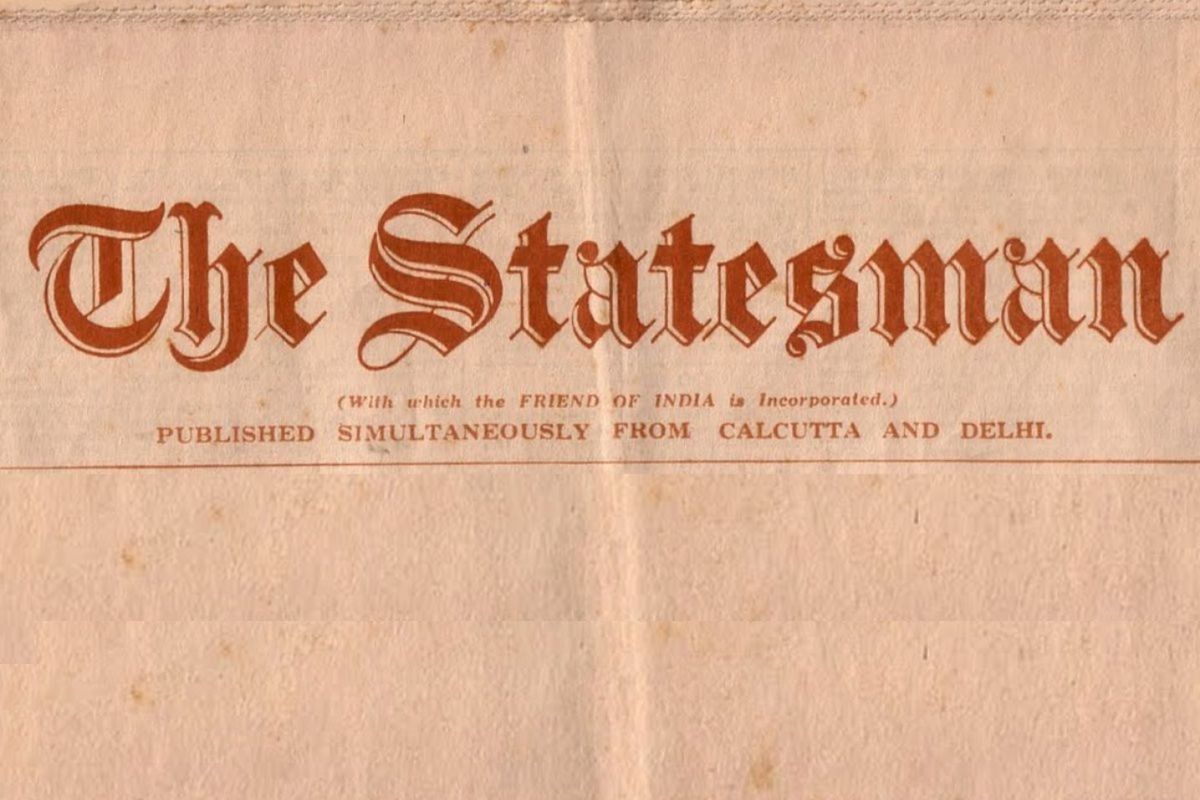A New Day, A New Dawn
There is a surprise for the readers. A special Poila Boishakh gift from none other than West Bengal chief minister Mamata Banerjee. Who has written a piece for this special edition.
On this day a century ago, these were some of the news items The Statesman readers got to read about India and the world.

OCCASIONAL NOTE
If the Bolsheviks are capable of undertaking only half the enterprises which they are reported to have in view they must be veritable supermen. While no one, least of all the dwellers in Indian cities, would be wise to ignore the possibilities connected with their propaganda, it is equally wise to recognise that there are limits to the potentialities even of Lenin and his followers. At the present time they certainly appear to be “top dog” in Russia, but they themselves would hardly claim to be the masters of that country, after three years of incessant fighting. It is true that, as the procedure of the French revolutionists showed, a century and a quarter ago, it is not necessary to be the absolute master in your own country in order to conduct a propaganda in other countries; but if you do not happen to be in this commanding position, your efforts to overrun and conquer other countries are inevitably handicapped. This being so, it seems fairly clear that the publicists of the civilised world are endowing the Bolshevik menace with almost supernatural powers. Not only is it about to overrun Asia, according to a number of authorities in England, but, judging from the upshot of a recent debate in the American Congress, it is about to overrun the West as well. It would be helpful if those who think they know could agree as to which direction it is most likely to take, for, especially in view of the very unstable equilibrium now prevailing in Russia.
BOMBAY STRIKE
Advertisement
BOMBAY, JAN 21
A serious disturbance took place at Curry Road yesterday afternoon. A large crowd of strikers assembled on the road and began to be troublesome. A party of policemen and some troops were sent to the spot and the men were dispersed. Some arrests were made, but within a few minutes another large crowd made its appearance on the Curry Road Bridge and started looting carts carrying coal and otherwise behaved in a riotous manner. Police piquets and troops were again sent there and they found about two thousand men on the bridge and its approaches. The crowd was so dense that the motor-lorry and the troops could make no progress. They tried to get through but instead of making way the crowd began to throw stones at them. As a result of this disturbance most of the shops in the locality were closed.
INDIAN LABOUR BOARD
Mr. F.C. Remington, Managing Director of the Bombay Tramway Company, writing to the Times of India, supports the establishment of an Indian Labour Arbitration Board consisting of representatives of labour and all large employers of labour, first to settle industrial disputes between labour and capital, and secondly to suggest ways and means to raise the general condition of the working classes, recommending to Government legislative action when necessary. He suggests that the Arbitration Board should consist of two members of the present Labour Settlement Committee to represent labour, two delegates each of the Bombay Municipal Corporation and the Millowners’ Association, one delegate from the Port Trust, the principal executive officer from each of the two railway companies.
EXCISE POLICY IN BOMBAY
Reviewing the Excise Department administration report for 1918-19, the Bombay Government in a resolution point out that it is clear that the objects which the Government set before them of securing the maximum revenue while the same time restricting consumption by high rates of taxation have been successfully achieved. Comparing the totals for the five years 1909-10 to 1913-14 with the five years 1914-15 to 1918-19, on the average a year’s consumption of country spirit in thousands of proof gallons during the former period was 2,700 and during the latter 2,640, a decline of 2.2 per cent. The average revenue for the first period was Rs 1,99,80,229, while for the latter period it was Rs 2,80,29,284, an increase of forty per cent.
NITROGEN SUPPLIES
The Nitrogen Products Committee, in its final report, recommends the adoption of measures for the synthetic production of nitrogen compounds on a large scale to enable the country to dispense with Chilean nitrate in war time, and urges the establishment of the calcium cyanide process in Great Britain without delay on a scale sufficient to produce sixty thousand tons of cyanide annually. The necessary electrical energy should be obtained either from water power in Scotland or by a large steam power station. The report submits proposals for conserving and increasing the existing output of combined nitrogen, and also for better utilisation of coal and the reduction of consumption of raw coal as fuel.
Advertisement